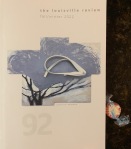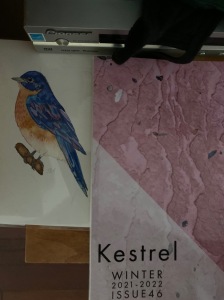All kinds of gardens have been part of my life. We live near Garvan Gardens. I went to Missouri Botanical Gardens often. My parents created gardens no matter where we were. That must root in the garden my grandmother grew, the gardens I find in old photos of her family. One of my father’s earliest and few memories was of the fig his grandmother Lucrezia had planted behind the brownstone his grandfather built in Brooklyn.
My father thought his father’s parents were shepherds in Calabria. Through research, I now realize it was his mother’s mother. She raised him so his parents could work, and she must have been the one who told those stories, as records show she moved through the countryside, tending animals and living off the land with her family. The place they left is a now a gateway to Sila National Park.
Today when I looked back on my poems in the Winter 2021-2022 issue of Kestrel, what seemed different at first, I realized wasn’t. “Lips” considers how a girl’s body is landscaped versus what it really might be. “Cultivar from the West” moves from the origin of the Arkansas black apple to consider what we impose on a garden versus what we might realize in one. This sonnet was featured on Verse Daily, and I hope you might draw close to its earth there.
.
.
.










